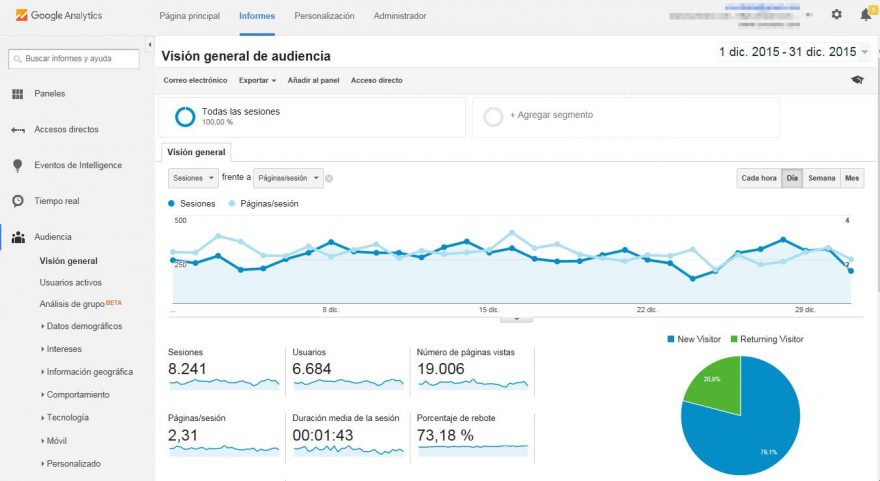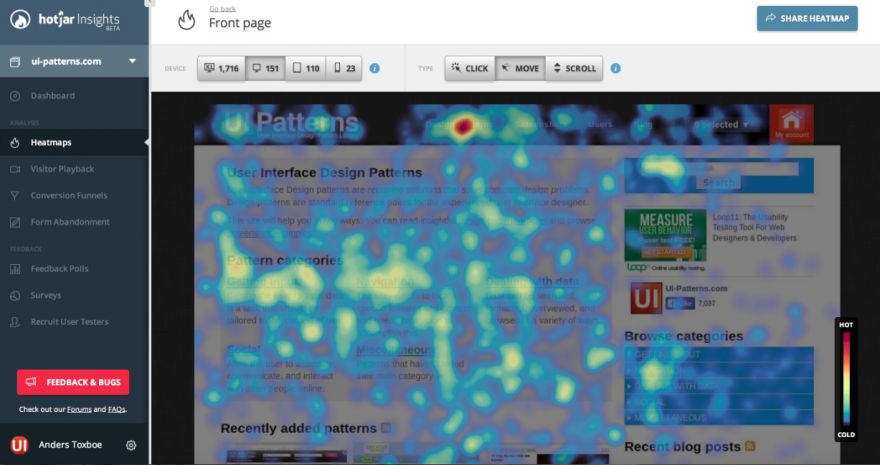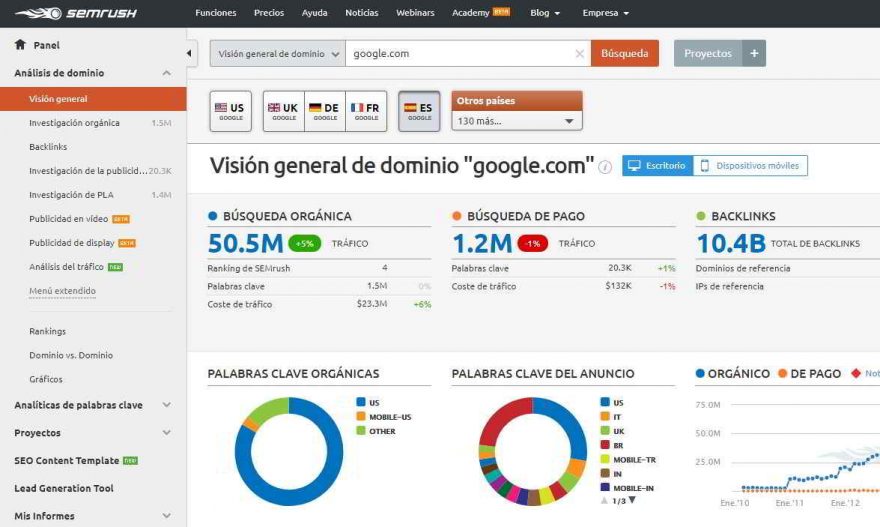More and more time is being spent by both brands and ourselves researching the places we are going to visit, where we are going to eat and what we are going to buy online before going to the physical establishment, and in many cases, we make the purchase online and via our mobile device before going to an establishment.
In recent years there has been an increase in the online presence of brands, both through social networks and their own websites, and online advertising through Google Adwords campaigns or campaigns on social networks such as Facebook, Twitter or Instagram, among others.
The need for brands to know the results obtained after having made an investment, both financial and professional, to increase their online presence, makes the web analytics in Digital Marketing is essential.
What data can we obtain through web analytics?
Each brand and each product must define a strategy in accordance with both its target audience and its objectives. Depending on these objectives, we will have to measure some data or others, among which we can find:
- Time spent on the website
- No. of pages viewed and time spent on each page
- Number of clicks on the different CTAs (Calls to action)
- Source of origin of the user
- No. of sales made
- No. of abandoned trolleys
- Time taken to complete the purchase process (number of times the same user returns without making the purchase until it is completed).
- Client demographics (age, place of origin...)
- No. of conversions through online advertising campaigns and conversion value
How can we measure?
There is a wide variety of web analytics tools that make it easier for us to obtain this data and its subsequent presentation. Below is a brief analysis of 3 of our favourite tools.
- Google Analytics

Owned by Google so it is usually the favourite of all users. It allows you to track both websites and blogs, as well as social networks and email marketing campaigns with tools such as Mailchimp.
Its ease of integration into different marketplaces and CMSs makes it one of the most widely used tools in the sector.
It offers the possibility of creating customised reports where you can see all the information about the traffic that arrives at the website according to the audience, its behaviour and the conversions that have been carried out, among other interesting data.
But what really makes Analytics the most complete tool is its ability to integrate with other Google tools such as Google Search Console or Google Adwords.
Google Analytics is currently part of the Google Marketing Platform package.
- Hotjar

Although Google Analytics offers you a lot of interesting data both in real time and in user-defined periods, Hotjar allows you to go a bit further.
This web analytics tool allows you to record user sessions and make heat maps with which you can create different conversion funnels and deepen the user experience.
It has a free version that is quite complete so that you can find out if it could really be interesting for your company.
- Semrush

Equally or even more important is the study of our competition when it comes to optimising our digital marketing strategy for this we make use of Semrush. You should not be fooled by its name as it offers very valuable information from an SEO point of view.
This tool provides information on the most relevant keywords, the degree of competition and even the specific url to which it refers.
One of the main characteristics of this web analytics tool is that it allows us to observe which Adwords campaigns our competitors are running. As well as the status of these campaigns compared to those of our company.





